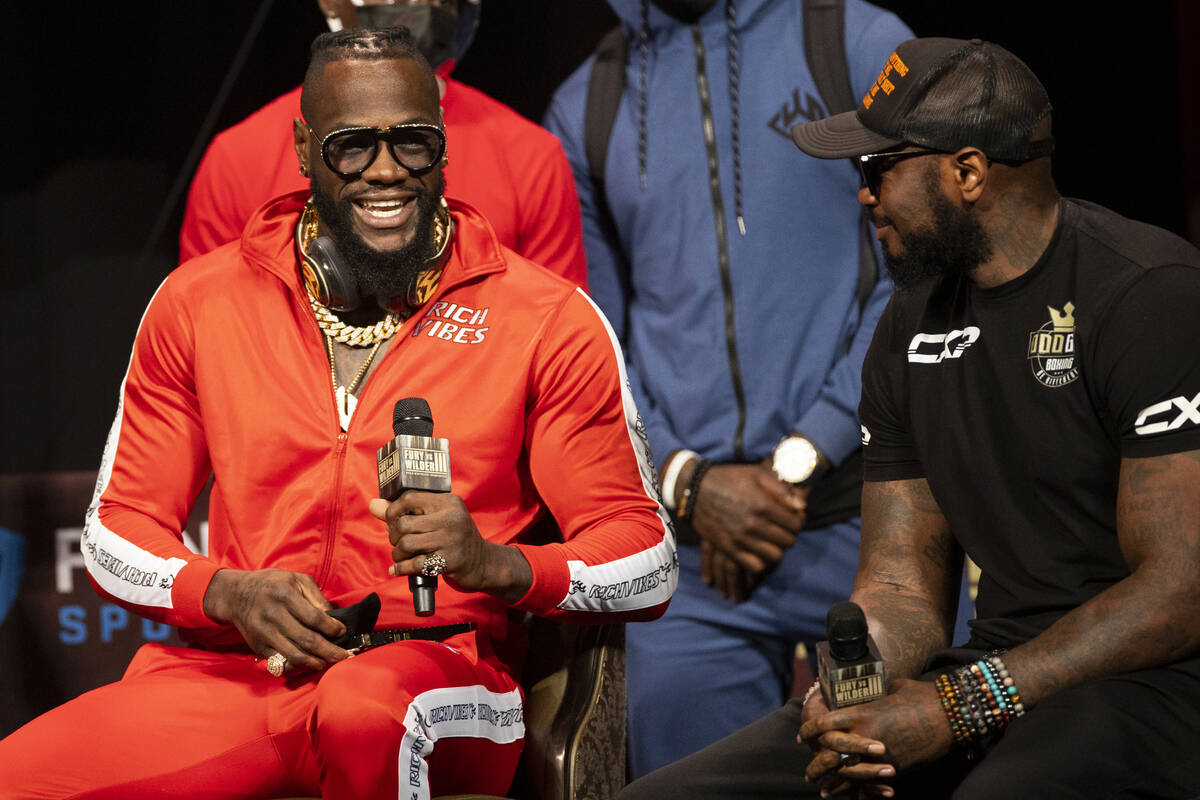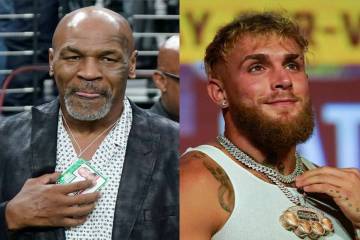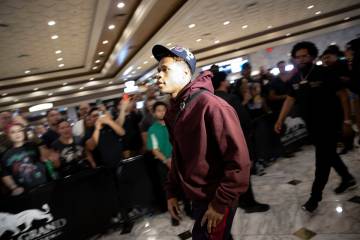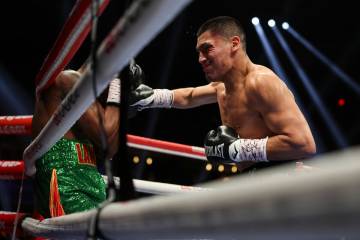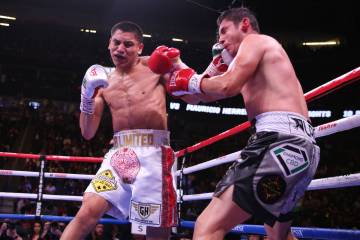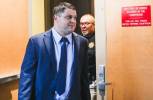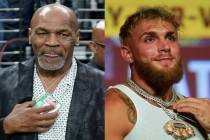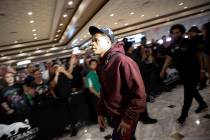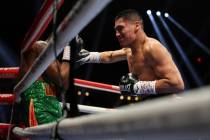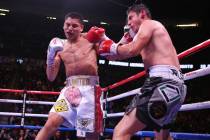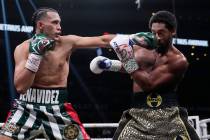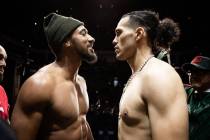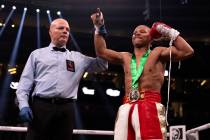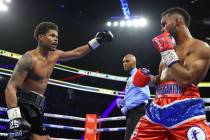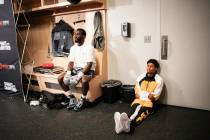Deontay Wilder’s new trainer: ‘He’s a totally different machine’
Malik Scott just started driving.
Moments after Deontay Wilder was stopped by Tyson Fury in their February 2020 heavyweight rematch, Scott – then a member of Wilder’s training team behind Jay Deas and Mark Breland – couldn’t physically handle staying in Las Vegas.
First, he had a brief conversation with Wilder in his hotel room.
“I told Deontay, that wasn’t a boxing match. We got beat up,” Scott said.
Then he took off for Los Angeles, driving through the middle of the night. The emotion, he said, of watching Wilder get beaten so handily, suffering the first loss of his professional career in the biggest fight of his life, made it impossible to stay in Las Vegas.
Hours later, early in the California morning, his phone rang.
“I want you to be my head trainer,” Wilder told Scott. “I’m gonna need your knowledge. You know me. And I trust you. There’s no other man for the job besides you.”
The trilogy concludes
This rivalry was never supposed to get this far — they will meet for the third time Saturday at T-Mobile Arena. The first fight took place Dec. 1, 2018, with Fury essentially playing the role of a lamb heading toward a quick and fateful slaughter. He had been out of the ring for three years, fighting mental illness and addiction, and had returned earlier that year with a few tuneup wins against D-level opponents.
Wilder was the undefeated WBC heavyweight champion, the guy who had knocked out every man who had dared to share the ring with him. But he needed a name opponent, and Fury was exactly that.
Fury had already surprised everyone by clearly outboxing Wilder until he was dropped by a brutal two-punch combination in the 12th round. He then pulled off one of the most shocking sports moments of the past few years when, after appearing to be out cold, he simply rose to his feet, beat the count and came straight at Wilder for the rest of the fight.
The end result was a controversial draw, one that meant there was plenty of unfinished business.
The second fight was about Fury’s trainer change, jettisoning Ben Davison in favor of SugarHill Steward. He promised to fight like Tommy Hearns, a legendary knockout artist whose style seemed eons away from Fury’s.
And yet it was just like he said. In the second fight, Feb. 22, 2020, Fury marched forward, bullied Wilder and dominated him for seven uncompetitive rounds.
“We always talk about how Deontay Wilder has the ultimate eraser,” said Joe Tessitore, calling the fight from ringside. “But you have to be able to execute it. You have to have a delivery system. And right now, his appears to be short-circuiting.”
He didn’t make it out of the round.
‘Sometimes you have to break people down’
There was a rematch clause in the contract, which Wilder’s team activated. The eventual trilogy fight was delayed because of the pandemic, a legal battle that went to arbitration and finally a positive COVID-19 test for Fury.
This fight is decidedly about Wilder. He’s always been a devastating puncher, but are there other levels to his game?
That’s where Scott comes in.
To him, Wilder has the “toolbox;” it’s just about unlocking it and picking the right tools at the right time. But Wilder has won only one fight by decision. He often shows little interest in winning rounds. He barely threw a punch through six rounds against Luis Ortiz, then rendered him unconscious with a single shot.
That’s who Wilder has always been to boxing fans: The guy who annihilated Arthur Szpilka, brutalized Bermane Stiverne in their rematch and flatlined Dominic Brezeale.
“Sometimes you have to break people down from a systematic, surgical standpoint,” Scott said.
Well, sure, but what does that actually mean?
“Deontay is not no boxer,” Scott said. “He’s not going to get on your toes, Pernell Whittaker, that’s not him. That’s not his makeup. That’s not what I was training or what I was teaching.”
To the new trainer, it’s about pulling out some of the things Wilder does well. Focusing on attacking the body. Throwing jabs from different angles. Moving in ways that Fury won’t be ready for.
Redemption, retaliation, retribution
One of the things Wilder has always done well is promote. But this time it’s been different, no “BOMBZQUAD” interjections during a news conference. In fact, he said almost nothing during the kickoff news conference for this fight.
There have been little nibbles: “For me, we thought it was a great idea for us, my whole team, to get vaccinated,” after a positive test from a partially vaccinated Fury forced a postponement; or “my energy is like my mind, it’s very violent,” maybe a callback to his claims that he wants to take a life in the ring.
Mostly, though, he’s been quiet. A spokesman declined an interview request for this story, citing Wilder’s busy schedule.
“I don’t have anything to prove,” Wilder said at this week’s final news conference. “I’m in a great place and in a great state of mind. I have a lot of great people around me. This fight is about redemption, retaliation and retribution.”
In a sense, it’s like a science experiment. The fighters — the y variable — are the same. Fury’s trainer is the same. The city is the same. The broadcaster is the same. The belt is the same.
Scott is the x variable. And there’s no way to know how he’ll change the equation until Fury and Wilder make the walk Saturday night, with the heavyweight title and so much more at stake.
Scott has a hypothesis.
“This Deontay Wilder would knock out the other Deontay Wilder in two, three rounds,” he said. “He’s a totally different machine right now.”
Contact Jonah Dylan at jdylan@reviewjournal.com. Follow @TheJonahDylan on Twitter.
Fight night
Who: Tyson Fury (30-0-1, 21 KOs) vs. Deontay Wilder (42-1-1, 41 KOs)
What: WBC heavyweight championship, 12 rounds
When: 6 p.m. Saturday
Where: T-Mobile Arena
TV: Fox/ESPN Pay-Per-View ($79.95)
Tickets: Starting at $175 on axs.com
Odds: Fury -280; Wilder +230 (BetMGM)



